We ask several HIT vendor executives the following question:
In addition to ARRA-related items, what will be some of the hot topics at HIMSS this year?
 Given the regulatory and economic pressures facing hospitals today, we expect to see a lot of emphasis on IT that brings real, measurable value. Hospitals need to achieve genuine ROI from software tools and proven results that can be sustained over time. Automated coding or speech recognition, for example, can improve productivity and reduce costs. Software that addresses the accuracy of clinical documentation can have an immediate impact on case mix and reimbursement. That’s the kind of real value our clients are demanding, and what we expect attendees to be thinking about at HIMSS. Data standardization will be another hot topic, and not only because the ONC has published an interim rule adopting certain standards. Exchanging clinical data in its various formats and terminologies, and across diverse systems and sources, is crucial to realizing all of the benefits that IT promises. Industry consensus around standards is certainly an important first step, but we also need to create links between these standards, other coding sets, and organization-specific vocabularies. And we need to standardize clinical data to be clearly defined, placed in context, and comparable across enterprises. Only then will we achieve meaningful, or semantic, information exchange at local, regional, and national levels.
Given the regulatory and economic pressures facing hospitals today, we expect to see a lot of emphasis on IT that brings real, measurable value. Hospitals need to achieve genuine ROI from software tools and proven results that can be sustained over time. Automated coding or speech recognition, for example, can improve productivity and reduce costs. Software that addresses the accuracy of clinical documentation can have an immediate impact on case mix and reimbursement. That’s the kind of real value our clients are demanding, and what we expect attendees to be thinking about at HIMSS. Data standardization will be another hot topic, and not only because the ONC has published an interim rule adopting certain standards. Exchanging clinical data in its various formats and terminologies, and across diverse systems and sources, is crucial to realizing all of the benefits that IT promises. Industry consensus around standards is certainly an important first step, but we also need to create links between these standards, other coding sets, and organization-specific vocabularies. And we need to standardize clinical data to be clearly defined, placed in context, and comparable across enterprises. Only then will we achieve meaningful, or semantic, information exchange at local, regional, and national levels.
– JaeLynn Williams, Vice President, Marketing and Client Operations, 3M Health Information Systems

In my opinion there will be two, possibly related, hot topics. One issue will be Electronic Health Records (EHR’s), admittedly a large HIMSS portion of the ARRA issue, and another will be physician integration and practice acquisition strategies. There is a very good possibility that the two should be considered an opportunity to “kill two birds with one stone”. When buying and installing an EHR each hospital or health system should consider how they could use that installation as a tool for physician integration without purchasing the physician’s practice. Many physicians are looking for an opportunity to maintain their independence but secure some kind of financial or operational support. Allowing physicians to access a hospital EHR without the physician(s) having to tie up capital and practice time worrying about the installations will bond these physicians to the hospital, or system, allow for greater continuity of care and allow the hospital to access federal funds to support the EHR installation all while eliminating the need for large capital outlays related to physician practice acquisition along with the associated future operational costs.
– Timothy J. Ogonoski, Managing Partner, AsquaredM

Utilizing technology to drive better quality and drive down costs will be front-and-center at HIMSS. However, technology can only enable quality care. Those workers who actually deliver or support patient care are the most important components of a healthcare delivery system. Even as we talk about “transforming” the system, healthcare leaders recognize their core challenge has not changed: providing quality care while controlling costs. And the biggest contributor to both objectives is staff. With countless variables at play, hospitals increasingly turn to data-driven staffing systems that deliver timely, useable information to support decisions executives and managers face during each shift. With actionable data on hand, leaders can make intelligent, effective staffing decisions with a full understanding of probable outcomes – both financial and quality-based. Assigning a recent nursing graduate with a lower pay grade may seem wise, for example, but managers must also consider the increased risk of adverse events, much costlier in the long run. In the current environment of impending reimbursement reform and P4P, it’s become clear that hospitals with a comprehensive understanding of workforce issues that manage their staff well will remain financially sound and be recognized as a patient-preferred provider of care.
– J.P. Fingado, President and Chief Executive Officer, API Healthcare

It’s hard to separate ARRA from the other major topics at HIMSS and in our industry this year. The incentives for Electronic Health Record adoption and use are accelerating all the other important trends. For example, health systems are focusing on connecting their affiliated physicians with EHRs to share information across all care settings via One Patient Record. This will give caregivers a comprehensive view of all data available about a patient from any location within or outside of the system. And they’ll accomplish this without investing hundreds of millions of dollars in a single-vendor system because the Allscripts Community Record can now populate the EHR with discreet data from multiple systems. We’ll also see more emphasis on developing actionable, quality feedback at the point of care that physicians can use to change outcomes rather than simply reporting quality metrics. We’ll begin to see payers, PBMs and pharmacy chains partnering with e-prescribing and EHR solutions to deliver information on best practices, care plans, and clinical guidance to physicians as they begin to directly tie compensation to results. Finally, the winners will be those companies that effectively use innovations to improve the quality of care and better manage costs.
– Glen Tullman, CEO, Allscripts
 I believe the entire healthcare industry is struggling to assimilate information technology across well established and existing ways of doing business. New ways of doing business are enabled by advances in information technology, but are hindered by the continued silos of self interest that permeate the current industry model of interaction. HIMSS should lead the way towards bringing more participants beyond healthcare providers and what I will call “traditional” vendors of healthcare information technology under a “big tent” approach to HIT, if the vision of a secure and interoperable electronic healthcare delivery system will ever be realized. This means reaching out to more payers, device manufacturers, consumer electronics manufacturers, and drug companies, and their current industry organizations (Advamed, PhRMA, AHIP, etc.) Today, many of them say similar things, but with vastly different meanings in some cases. For example, pay for performance is common phrase, but not a shared concept. It may not qualify as a “hot” topic, but without more collaboration between all of the different stakeholders, 2010 will come and go without “meaningful progress” towards a future where everyone benefits from the efficiencies, quality improvements, and convenience of a connected healthcare network.
I believe the entire healthcare industry is struggling to assimilate information technology across well established and existing ways of doing business. New ways of doing business are enabled by advances in information technology, but are hindered by the continued silos of self interest that permeate the current industry model of interaction. HIMSS should lead the way towards bringing more participants beyond healthcare providers and what I will call “traditional” vendors of healthcare information technology under a “big tent” approach to HIT, if the vision of a secure and interoperable electronic healthcare delivery system will ever be realized. This means reaching out to more payers, device manufacturers, consumer electronics manufacturers, and drug companies, and their current industry organizations (Advamed, PhRMA, AHIP, etc.) Today, many of them say similar things, but with vastly different meanings in some cases. For example, pay for performance is common phrase, but not a shared concept. It may not qualify as a “hot” topic, but without more collaboration between all of the different stakeholders, 2010 will come and go without “meaningful progress” towards a future where everyone benefits from the efficiencies, quality improvements, and convenience of a connected healthcare network.
– Dane Stout , Executive Director, Connected Health Practice, The Anson Group, LLC

Expect all eyes to be on enterprise-wide data management. The volume of data produced and stored by healthcare organizations is rapidly approaching critical mass. PACS. Health information systems. Electronic health records. Email archives. The buzz at HIMSS will most likely focus on strategies that incorporate the right mix of storage assets with sophisticated functionality that protects the data, yet provides access to the appropriate user where and when it’s needed. But the million dollar question undoubtedly will be, “How do we accomplish this?” Among the most promising solutions are vendor-agnostic technologies that underpin existing systems. This allows healthcare organizations to optimize the primary functionality of individual systems, while handling storage, archiving and back-up from a single, user-friendly management platform. The approach offers many advantages: A multi-tiered data management schedule can be implemented so users can have ready access to pertinent information, with older files consigned to less-costly storage assets. Data management can be centralized under IT to achieve a cohesive, secure approach. Plus, the cost of storage can be allocated to individual departments based on their usage. The headaches of data migration during new system installations or upgrades are eliminated since storage assets are vendor neutral.
– Tony Cotterill, CEO, BridgeHead Software
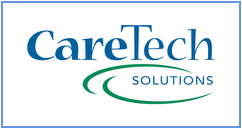
Secure authentication for sharing patient data within the medical community will be a hot topic at HIMSS 2010. Healthcare IT professionals should also be thinking about “the day after ARRA” or how will we support the added complexity in our IT systems? Now is the time to be considering advanced help desk services and data center hosting.
– Pat Milostan, Senior Vice President and Chief Operating Office, CareTech Solutions

Physician Revenue Cycle Services will be a hot topic at HIMSS this year. Physicians are concerned about making sure that their revenue cycle is not negatively impacted during the implementation of a standalone EMR system or during an EMR and Practice Management system implementation. HIMSS attendees will be looking to find vendors that can provide a full suite of technology and services that will expedite the implementation process, maximize revenue capture and collection and ensure compliance. The ARRA legislation is specific to EMR, it is clear that physician practices are looking at their technology platform for financial and clinical needs and cannot look at an EMR investment in a vacuum.
– Rob Culbert, President, Culbert Healthcare Solutions
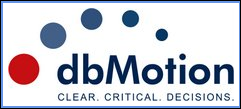
I believe it will be clear that connected healthcare has moved to the forefront of C-level executive’s strategies We are hearing executives, with and without IT backgrounds, say that connecting communities is a critical endeavor to provide better care, drive financial performance, and in some cases, to keep physicians from retiring when the Medicare reductions hit. When you combine these challenges with shifts in reimbursement, including reimbursement for proactive medicine through the medical home, you start to see leaders reaching out beyond their walls, creating “care communities” centered on referral patterns.Interestingly, once brick and mortar stops constraining healthcare, old models start to break. When you decide to work with the community, you have little choice but to leave the constructs of a single-vendor solution. A prime example is our partner and investor UPMC, whose Children’s Hospital of Pittsburgh recently achieved HIMSS Stage-7 certification – the first of its kind for a multi-vendor environment. With a platform to aggregate and harmonize the information from an array of disparate systems , UPMC has been able to create a comprehensive “patient chart” – a key breakthrough for both clinicians and organizations seeking to leverage their existing investments.
– Peter McClennen, President for North America, dbMotion

Providers are becoming much more aware of the value of data and how it can be used in a more useful manner to improve outcomes. Attendees will be talking about leveraging clinical informatics to implement, measure, and improve best-practice, quality care, so we expect to see strong vendor focus and provider interest in Business and Clinical Intelligence Solutions. Another hot topic is the patient centered medical home model of care. We are beginning to see an interest in managing disease and/or wellness from an interdisciplinary approach. The importance of sharing clinical information, across care settings as well as into the patient home, is critical to achieving optimal health and wellness outcomes. Technology can be implemented in order to support the patient centered medical home model. Lastly, providers and vendors alike will be talking about the role of technology in integrating physician and hospital providers; we will see many vendors focusing on hand held platforms for physician office EMRs, even more so than in previous years; we anticipate a vigorous dialogue regarding reporting requirements of the various regulatory agencies in addition to meaningful use; the upcoming transition to ICD10 and a move to an updated 5010 claims transaction; and of course all of the issues associated with medical device integration. HIMSS 2010 should be more exciting than ever with all that is going on and we are proud to play a role in the transformation of our healthcare system.
– Colin Konschak, MBA, FHIMSS, Managing Partner, DIVURGENT

We expect to see some exciting developments in the EHR market regarding deployments and interoperability. In the area of deployment, we expect to hear some buzz around scale and speed. Vendors will manage scale by implementing practices faster. Interoperability is always a key phrase, but this year should bring some truly revolutionary approaches to how practices communicate with each other. Expect to hear about some exciting developments in the interoperability space.
– Girish Kumar Navani, CEO and co-founder, eClinical Works

I would like to touch on two items that seem to be relatively acute:
Patient Safety in EHRs: Concerns have been raised by certain parties about the safety of health information technology in patient care. The HIT industry has a fair amount of experience worldwide about the types or errors that may compromise patient safety in EHRs. The risk would appear to be low if the system is well designed and used properly. There is also evidence that the patient care benefits of HIT greatly outweigh any potential for harm. However, this does not mean that every effort should not be made to analyze and address any system errors or user interactions that could increase the risk of a medical misadventure. This process needs to be transparent and open.
Medicolegal Impact of HIT: Improvements in patient care and documentation that are afforded by HIT should reduce the risk for medical errors and hence medicolegal claims. However, clinicians will soon have access to much greater amounts of patient information through HIEs, PHRs, patient portals, home monitoring devices, data warehouses, etc. Since providers cannot be expected to review unlimited volumes of information, the question has been raised as to what the standard of care should be for clinical data gathering in an “information-rich” environment.
– Michael Stearns, MD, President and CEO, e-MDs, Inc.

Given the changes taking place on reimbursement models including pay-for-performance, there is a relevant and heightened need to focus on improving patient care. In addition, Meaningful Use guidelines explicitly call for patient and family engagement with their medical records. At the same time, CIOs and IT leaders are working with fewer resources and strained nursing staff, marking the need for solutions that help streamline standardized care at the bedside. There is a growing list of companies providing bedside patient engagement solutions – also called interactive patient care solutions – to address this need. These systems capture information right at the point of care from patients and send all that important data back to EMRs, CPOE, and other HIT systems to help hospitals with service recovery initiatives as well as improve patient safety and quality through patient engagement. There are a few terrific education sessions at HIMSS lead by hospitals using these solutions to improve everything from quality of discharge education to pain management and medication teaching. We are excited to be among those leading this emergent segment, and look forward to an active dialogue with hospitals and technology partners in Atlanta.
– Michael O’Neil, CEO and Founder, GetWellNetwork

This annual conference, more than ever before, will bring forward the premise of why “health IT” and why now. We will witness ground-breaking partnerships and strategic relationships between leading companies even global in scale with Health IT innovators. What’s happening is these leading companies are understanding how healthcare IT can impact their bottom line in terms of employee health management, care coordination and very importantly, how to stabilize raising healthcare costs that have created 10%-17% annual increases. It is the same type of realization that has moved Health IT into being the foundation of any healthcare reform or transformation that may occur. I suspect we’ll see a lot of new Fortune 500 faces this year, and a lot of interest from overseas pursuits, evidenced by a record attendance expected to reach 30,000, which itself is a testament to the importance of this industry even in an economy that is still in recovery.
– Justin Barnes, Vice president, Marketing, Corporate Development and Government Affairs, Greenway Medical Technologies, Inc.

The accelerated adoption and extension of clinical solutions, as well as the ARRA-required data sharing across distinct organizations forces us to exam some fundamental questions about the capability of our technology solutions as well as some of our guiding principles as healthcare organizations. On the technology front: 1) How do we ensure privacy of a shared patient record? 2) How do we manage “patient preferences” and ensure they are abided by when sharing patient data among the authorized care team members? 3) How to we guard against security breaches? Recognizing that this fundamental infrastructure shift from paper to electronic systems will create dependency upon electronic data management, are we sure we have robust technical solutions in place to ensure business continuity and disaster recovery processes? In terms of guiding principles and ethical responsibilities as healthcare organizations, we may also find ethical questions come to the limelight: what is the legal medical record when you have a hybrid solution across a domain which includes independent providers. What are the responsibilities of the host organization who delivers the solution to ensure the integrity and quality of the data? What medical/ethical liabilities are we creating for all providers on the system if we do not ensure the integrity and quality of the record we are delivering? As the HITECH Act enables greater participation in the creation of electronic medical records, implementing these solutions raises many new considerations we will need to address rapidly.
– Peter J. Butler, President, Hayes Management Consulting

In addition to the ARRA-related items, we believe other hot topics will include Ambulatory Electronic Medical Records (EMRs), clinical informatics and interoperability. Ambulatory EMRs, while tied to the ARRA Stimulus, will remain predominant because hospitals see Ambulatory EMRs as a key strategy for 2010 and 2011, as many community-based hospitals are relying on their ability to interface with affiliated physicians as a key driver of revenue and patient retention. Clinical informatics is very much on the minds of hospital executives as they look to optimize their investments in clinical systems and provide key information (physician scorecards) to the community and government agencies on patient treatment. Interoperability is becoming a major focus as physicians who are, now more adept at hand-held devices, desire the ability to access medical records from a variety of places and medical devices, and need increased ability to send clinical information to be stored in electronic medical records. These are a few of the key strategies The Huntzinger Management Group is currently assisting our clients execute in addition to those specifically related to ARRA.
– George Huntzinger, CEO, The Huntzinger Management Group
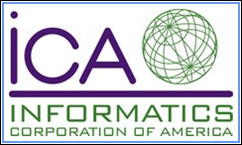 Interoperability within both the integrated delivery systems and communities (HIEs) will be emphasized at HIMSS. No matter how projects are funded, healthcare leaders seek ways to make the investments in HIT more beneficial to the physicians delivering the care. The increased focus on interoperability as it relates to truly delivering integrated care across the continuum will serve as a focal point for IT decisions in the short and long-term horizon. This will be combined with a much stronger focus on physician adoption as a cornerstone for achieving productive use of any IT solution. How disease management is applied across the continuum of care will also be on everyone’s mind as it relates to both cost and quality of care. We’ve talked about managing chronic diseases for years, but I believe that we’ve achieved a level of common understanding at this point where real solutions can be deployed to assist in these efforts. Lastly, the future of healthcare reform, cost containment and other government involvement within healthcare will naturally dominate the landscape. Uncertainty and speculation about where the administration, congress and the industry in general will focus their efforts in the coming year will fuel debate within the halls of HIMSS.
Interoperability within both the integrated delivery systems and communities (HIEs) will be emphasized at HIMSS. No matter how projects are funded, healthcare leaders seek ways to make the investments in HIT more beneficial to the physicians delivering the care. The increased focus on interoperability as it relates to truly delivering integrated care across the continuum will serve as a focal point for IT decisions in the short and long-term horizon. This will be combined with a much stronger focus on physician adoption as a cornerstone for achieving productive use of any IT solution. How disease management is applied across the continuum of care will also be on everyone’s mind as it relates to both cost and quality of care. We’ve talked about managing chronic diseases for years, but I believe that we’ve achieved a level of common understanding at this point where real solutions can be deployed to assist in these efforts. Lastly, the future of healthcare reform, cost containment and other government involvement within healthcare will naturally dominate the landscape. Uncertainty and speculation about where the administration, congress and the industry in general will focus their efforts in the coming year will fuel debate within the halls of HIMSS.
– Gary Zegiestowsky, CEO, ICA

In addition to the Stimulus Bill and meaningful use guidelines, the hot topics at HIMSS will be around optimizing your EMR and achieving ROI from your implementation. Leveraging that foundation to build community based EHRs (HIEs) will be important, as well as utilizing technology to support new clinical models like patient-centered medical homes. ICD-10 and 5010 are moving ever closer, so preparing for these changes are on the list as well.
– Scott Hendrickson, Senior Vice President, INGENIX Consulting
 Mobile technology solutions for mobile medical professionals should be a hot topic at HIMSS this year. Mobility supports healthcare IT’s primary mission of “anywhere, anytime” clinician access to patient information (getting the right information to the right person at the right time). As healthcare becomes more patient-centered and collaborative—spurred on by the social media revolution, among other factors—mobility will become a much more important factor in the selection of hospital information systems. Patient self-management, especially for chronic disease, will demand mobile solutions that most consumers have already adopted. In the future, healthcare will conform more to consumer lives rather than consumers having to conform to providers, which has been the case in the past.
Mobile technology solutions for mobile medical professionals should be a hot topic at HIMSS this year. Mobility supports healthcare IT’s primary mission of “anywhere, anytime” clinician access to patient information (getting the right information to the right person at the right time). As healthcare becomes more patient-centered and collaborative—spurred on by the social media revolution, among other factors—mobility will become a much more important factor in the selection of hospital information systems. Patient self-management, especially for chronic disease, will demand mobile solutions that most consumers have already adopted. In the future, healthcare will conform more to consumer lives rather than consumers having to conform to providers, which has been the case in the past.
– J. R. O’Pry, Jr., CEO, IntraNexus

As the healthcare industry moves towards true interoperability of information sharing between healthcare professionals the consumer will continue to demand greater access and control to their data. With this in mind, patient centric solutions such as self-service kiosks and patient portals will play a much bigger role for Healthcare delivery organizations. Another area of high interest is around the topic of HIE’s (Health Information Exchanges). Many statewide and geographical initiatives are already underway to allow for the sharing of healthcare information across disparate HIS’s and delivery organizations. As we move towards a national exchange of information, healthcare professionals will need to be aware of the state of readiness within their own organizations.
– Rich Zegel, VP of Development, Keane

Obviously ARRA will be ‘center stage’. Because the ‘meaningful use’ criterion is so broad, it will be difficult to separate ARRA related items from the rest of the pack. Certainly, ‘end-user’ adoption and connectivity solutions will be very important this year. Solutions that leverage technology across the patient continuum, particularly where the physician meets the patient, will be prominent. In this area we will likely see some interesting mobile devices allowing the clinician access to critical patient information regardless of location. Reporting solutions will also be a highlight at HIMSS. From business analytics dashboards that assist administrations in managing the effectiveness and efficiency of their staffs and facilities; to quality reporting of outcomes and standards achievement CMS and the public, reporting will be the ‘center piece’ in how healthcare organizations will be measured. Integration solutions should be featured. Underlying all of this will be the solutions and themes that enhance the patient experience and, ultimately, maximize the ROI of IT investments.
-Parker Hinshaw – CEO of maxIT Healthcare, LLC

In addition to empowering our customers to achieve meaningful use, we expect to see a lot of interest in solutions that help maximize performance by: increasing revenue through improvements in revenue cycle processes; reamlining processes and improving productivity; and, improving the quality and safety of patient care. So, we expect to see a lot of interest in clinical solutions that promote safe care and better outcomes throughout the continuum. As healthcare organizations begin to look beyond stimulus projects to address upcoming healthcare reform, our enterprise revenue management solution can play a key role in helping healthcare organizations increase revenue and billing cycle efficiency. Of course, performance analytics are critical to integrating point-of-care clinical data with administrative and financial data and transforming that raw data into actionable information. We expect to hear from community hospitals and independent physician practices seeking the same EHR capabilities as their larger counterparts but at a lower total cost of ownership. Finally we’re seeing increased pressure on our customers to connect various stakeholders – hospitals, physicians, payors, patients, etc. – through health information exchanges and adoption of EHRs. Across the board, the focus is on making technology operationally viable and accelerating the “time to value.”
– Sunny Sanyal, President, McKesson Provider Technologies
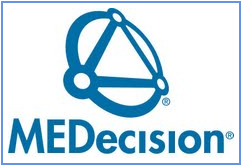
One of the hot topics at HIMSS this year is sure to be the continuing trend toward collaboration, interoperability and health information exchange. MEDecision has long maintained that the most promising means of bringing real change and improvement to the health care system is by giving all stakeholders shared access to clinical data across technical platforms. We also believe that in order for this sort of collaboration to be optimally effective it must be built around and focused on the patient and their needs. We’re starting to see these concepts gain some real traction in the industry and there has been some legitimate movement toward overcoming the technical boundaries to true health information exchange. The issue is really starting to gain momentum and I think it will be a very prominent theme at the conference.
– Scott A. Storrer, President and Chief Executive Officer, MEDecision

iPhone and iPad apps for physicians – and any other methods for making health IT adoption as easy and undisruptive as possible for physicians – will be a hot topic at HIMSS.
– Greg Miller, Sr. Vice President Sales & Marketing, Medicity

Big Talk at HIMSS will be around finding the talent to implement and support all of the ARRA Meaningful Use criteria. Chief Information Officer’s (CIO’s) and their direct reports are scrambling to not only identify their Meaningful Use shortcomings, but then develop plans to address these shortcomings. Such efforts are clearly not limited to just the implementation of an application, but also includes the need for Interface Development, Report Writing, Testing, Training and Activation Support. All of this while continuing to support existing legacy solutions and closely monitoring expenses. CIO’s will look to leverage employees within their facility that reside outside of IS, hire additional staff and utilize third party consulting resources as just a few of the ways to bridge the staffing gap. For the first time in many of their careers, there is true financial incentive to accelerate the deployment of specified functionality and the leadership of many hospital’s seem to understand the language of financial incentives.
-Bruce Generotti, COO, MedMatica

In my travels around the country, I hear growing focus on network development – from implementing FTC-compliant Clinical Integration programs to organizing for emerging forms of value-based purchasing, including Accountable Care Organizations (ACO). Both Clinical Integration programs and ACOs require a new level of collaboration among hospitals and providers. They therefore need IT platforms that work for both employed physicians and community-based affiliated physicians, and that work across the resulting diversity of EMRs and other systems. Such platforms need to go beyond data management to tools that effectively drive improvements in quality & costs – tools that are not available in EMRs today. Effective solutions will need to be enterprise in nature – spanning the entire continuum of care – and will require next level data acquisition and integration expertise. They will need to meet multiple business and clinical objectives, including supporting ACOs, Clinical Integration programs, medical home initiatives, and meaning use qualification. There is a clear imperative to not have multiple separate solutions that result in interoperability challenges and workflow inefficiencies. I believe there is growing demand for next generation platforms that satisfy multiple needs in an enterprise setting.
– Jonathan M. Niloff, M.D., Founder and Chief Medical Officer, MedVentive Inc
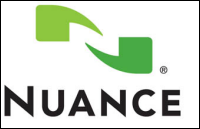 EHRs, speech recognition, mobile applications, tools that support patient safety, clinical decision support and natural language processing are some of the hot topics we’ll see at HIMSS 2010. As the demand for efficiency and accurate data capture, along with improved quality of care and a reduction in costs associated with better care persists, healthcare IT solutions that can meet these critical needs will gain the hot topic spotlight. EHRs are becoming a source in which physicians are able to electronically capture high quality data faster than they can in traditional formats. Because the value of EHRs will only be realized if the information captured within them supports improved, ongoing patient care, speech recognition, which helps to improve the quality of EHR data, will continue to see increased adoption. Mobile applications that cater to physicians’ on-the-go and remote workflow, as well as tools that improve caregiver-to-caregiver communication and guide medical decision-making will also receive a lot of attention at HIMSS. Finally, natural language processing, the ability to unlock and understand unstructured medical documentation will be discussed on the floor, in sessions and certainly at the Nuance booth (#7633).
EHRs, speech recognition, mobile applications, tools that support patient safety, clinical decision support and natural language processing are some of the hot topics we’ll see at HIMSS 2010. As the demand for efficiency and accurate data capture, along with improved quality of care and a reduction in costs associated with better care persists, healthcare IT solutions that can meet these critical needs will gain the hot topic spotlight. EHRs are becoming a source in which physicians are able to electronically capture high quality data faster than they can in traditional formats. Because the value of EHRs will only be realized if the information captured within them supports improved, ongoing patient care, speech recognition, which helps to improve the quality of EHR data, will continue to see increased adoption. Mobile applications that cater to physicians’ on-the-go and remote workflow, as well as tools that improve caregiver-to-caregiver communication and guide medical decision-making will also receive a lot of attention at HIMSS. Finally, natural language processing, the ability to unlock and understand unstructured medical documentation will be discussed on the floor, in sessions and certainly at the Nuance booth (#7633).
– John Shagoury, Executive Vice President, Nuance Healthcare
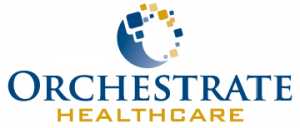
“Macro-level” HIMSS conversation-starters include ARRA, uncertainty with healthcare reform, investments in enterprises systems (e.g. Epic), and mergers and consolidation. But people who are busy with the “micro-level” issues that address the underlying process re-engineering of healthcare via information technology (HCIT) and information exchange (HIE) will be discussing infrastructure challenges like interoperability and scalability, and ‘hot’ technologies like web services, SOA, software-as-a-service (and integration- and platform-as-a-service), and mobile solutions (e.g. iPhone apps). These are age-old topics and challenges for HIMSS participants that are not likely to be legislated away by ARRA any more than they were by HIPAA; they are not likely to be “implemented away” by Epic or the latest iteration of enterprise systems; nor are they likely to be “integrated away” by a vendor that has acquired a stack of disparate HIE solutions. Given the latest wave of investment in HCIT and HIE, HIMSS conversations will inevitably move to the topics that address the challenges of delivering financial and operational improvement: what are the right solutions and technologies, where are the people and partners who can deliver results, and how do we deal with these challenges better than we have done for the past twenty years.
– Charlie Cook, President, Orchestrate Healthcare

Quality, Pay for Performance, Privacy, and Labor. Granted these issues are generated by ARRA but they all will be in play in a major way.
Quality: Providers seeking products will be selecting like hawks circling prey. They will choose carefully and the best vendors will win.
Pay for Performance: Following selection, Providers will expect and demand guarantees and they should. Performance is a must or the vendor is in trouble anyway, so payment ties will be paramount.
Privacy: There are so many different places to put patient information now — personal health records, physician office EMRs, hospital systems — and so many efforts related to sharing it. Reading about the efforts of Beth Israel Deaconess Medical Center or Partners HealthCare to connect physician offices with the hospitals and pondering all the different privacy/confidentiality and HIT agreements required made me dizzy. Caution is mandatory.
Labor: With new CIOs blazing new paths for hospitals with a little extra money to spend, developers making sure products meet certification, implementers getting things done on time, consultants and attorneys assisting in selection and contracting, the HIT labor force will be squeezed hard in the near future. From where will the talent emerge?
– William O’Toole, O’Toole Law Group

One of the major issues facing hospitals and physicians today is finding a better way to deploy CPOE. When this technology first came onto the scene, it brought with it a lot of excitement and a lot of promises – promises which have yet to be delivered. The promise of CPOE is tremendous – reduced medical errors, higher rates of industry compliance, and happier, more efficient physicians. Unfortunately, to date, CPOE has not been effective in achieving these goals it set forth. In fact, while numerous studies have reported opportunities to reduce errors by greater than 80% through CPOE, barely one-third of hospitals have purchased some form of CPOE, and even in these rare cases, fewer than 10% of physicians actually make use of the system to enter their orders.
– Paul Brient, CEO, PatientKeeper

(a) Emerging technologies (think telemedicine)
(b) Remote patient monitoring (greater shift to technology in the home)
(c) Transformation of patient experience (access to health information/PHR)
(d) Payment reform and impact on hospital buying behavior
(e) Wireless and sensor technologies (inclusive of RFID, GPS etc.)
– Deborah DiSanzo, CEO, Healthcare Informatics, Philips Healthcare

We believe that hospitals are coming out of the recent recession very focused on optimizing revenue. They know they’re not going to be able to raise rates to payors and they’ve cut all the costs they possibly can – we’ve never seen so many hospital lay-offs as in 2008-9. Hospitals leak enormous amounts of revenue due to inadequate documentation of charging and coding. Nowhere is that more prevalent than in critical care, surgery and emergency care where the caregivers have no time to fill out charge slips and the ones they do fill out are full of errors. We believe there is a growing opportunity in recovering revenue at the point of care by automatically and seamlessly pulling the correct coding and charging information from the clinical documentation in these care areas. We’re talking millions of dollars of net patient revenue per year in recovered revenue. This is not revenue cycle management – that’s too late – when the patient’s left the hospital. This is point of care revenue capture and it will become as important as increasing patient safety and improving outcomes for EMR’s.
-Todd Cozzens, CEO, Picis
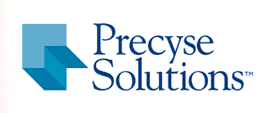
As an important corollary to the ARRA, EHR adoption will undoubtedly dominate conversation. But forward-looking providers already recognize that EHR adoption alone is inadequate. The overarching objective of reform is to support a continuum of information, facilitating improvements in access, quality, safety, efficiency, and outcomes. Clearly, EHRs play a vital role by extracting paper from the healthcare system. Yet EHRs are but one component in an HIT portfolio, which also must include e-prescribing, clinical decision support, voice recognition and natural language processing, messaging and alerting, telehealth, and consumer health information portals – technologies necessary to delivering electronic information to health professionals at the point of care in real time. The foundation of reform, in other words, is access to comprehensive patient information. To attain the elusive Holy Grail – meaningful use – it is imperative that all data relative to care delivery be available – from clinical documentation to op reports to lab results. Ideally, all must be captured as discrete data elements so they can be appended and integrated into the medical record, and called upon as needed. This requires that leadership at healthcare organizations become attentive to the most effective ways to capture and automate information flow, from office-based dictation through discharge.
– Jeffrey Levitt CEO and Founder Precyse Solutions, LLC

A topic of important interest at HIMSS this year will likely be the expected shortage of qualified, credentialed healthcare IT specialists that will be needed to fulfill the effective adoption of the next generation of electronic health records management. In addition to the increasing number of resources needed due to the incentives of ARRA, there were many projects of similar nature placed on hold last year due to the state of the economy that will require additional resources to restart and complete. Providers will be challenged to meet IT future staffing requirements as demand for personnel resources will likely exceed the available supply.
– Mark Debnam, CEO, Quality IT Partners

With the entire focus of the industry shifted in order to bring 80% of the country up to speed, what portion of attention and action can vendors provide to those healthcare organizations already at advanced stages that want to have the industry pay attention to higher evolutionary development of HIT? Will this in fact be a set back for HIT while everyone else catches up?
– Laura Noble, Chief Executive Officer, Renaissance Resource Associates
 Most things will be at least tangentially stimulus related. It will also be interesting to hear how hospitals plan to work with HIE’s and how they will answer the challenge of sharing data given their reflexive need to protect revenue. There will be more discussion of Medical Home this year. Also, mobile computing will be on people’s minds, as the maturity of this technology and new platforms continue to evolve rapidly and present opportunities for physicians and other stakeholders to improve access to data.
Most things will be at least tangentially stimulus related. It will also be interesting to hear how hospitals plan to work with HIE’s and how they will answer the challenge of sharing data given their reflexive need to protect revenue. There will be more discussion of Medical Home this year. Also, mobile computing will be on people’s minds, as the maturity of this technology and new platforms continue to evolve rapidly and present opportunities for physicians and other stakeholders to improve access to data.
– Andy Riedel, Sage Product Marketing, Sage Healthcare Division
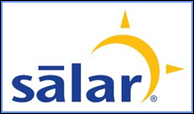 Physician documentation is sure to be a widely-discussed topic at HIMSS this year. As more and more hospitals move towards fulfilling a Stage 6 electronic medical record, deficiencies in the physician documentation capabilities of core HIS platforms are becoming more obvious. Hospitals will look to fill these gaps with solutions that plug seamlessly into their existing EMR systems and give their physicians the functionality they need. Successful physician documentation technology has the potential to save physicians time, improve physician collections, increase hospital Case Mix Index and decrease hospital transcription costs. The key is to find a solution that enhances the physician’s natural work process, not hinders it.
Physician documentation is sure to be a widely-discussed topic at HIMSS this year. As more and more hospitals move towards fulfilling a Stage 6 electronic medical record, deficiencies in the physician documentation capabilities of core HIS platforms are becoming more obvious. Hospitals will look to fill these gaps with solutions that plug seamlessly into their existing EMR systems and give their physicians the functionality they need. Successful physician documentation technology has the potential to save physicians time, improve physician collections, increase hospital Case Mix Index and decrease hospital transcription costs. The key is to find a solution that enhances the physician’s natural work process, not hinders it.
– Todd Johnson, President/CEO, Salar, Inc

Cloud computing solutions that are engineered for healthcare need to be a focus, because once the ARRA stage 1 chores of communication standards
are out of the way, everyone is going to need flexible, secure, highly connected computing to facilitate the reporting requirements of later ARRA stages. Hospitals can’t be expected to run world class datacenters, but are required to protect their data and systems with world class measures. A healthcare specific cloud computing solution is a great way to solve both problems at an infrastructure level.
– John Peebles, CIO, Sentry Data Systems, Inc
 It is critically important that we enable the laboratory to communicate with its customers efficiently, effectively, and seamlessly. The Physician Portal is one mechanism by which our customers can connect to their customers and provide efficient services, get results back in a timely manner, and utilize correct patient care protocols. Similarly, laboratories require data at their fingertips to demonstrate their efficiency and continuously improve operations. Business Intelligence is able to delve deeply into data and posture it into actual results and findings. Matters that get attention are those that are measured; so our customers must be able to drill down and turn data into information that is accessible as well as actionable. Managers and leaders of these organizations are enabled to enhance awareness of the performance of their organizations, their improvement opportunities, and the value that they bring. Only then are they empowered to improve their customer service levels and their cost base so they can continue to compete and grow their businesses.
It is critically important that we enable the laboratory to communicate with its customers efficiently, effectively, and seamlessly. The Physician Portal is one mechanism by which our customers can connect to their customers and provide efficient services, get results back in a timely manner, and utilize correct patient care protocols. Similarly, laboratories require data at their fingertips to demonstrate their efficiency and continuously improve operations. Business Intelligence is able to delve deeply into data and posture it into actual results and findings. Matters that get attention are those that are measured; so our customers must be able to drill down and turn data into information that is accessible as well as actionable. Managers and leaders of these organizations are enabled to enhance awareness of the performance of their organizations, their improvement opportunities, and the value that they bring. Only then are they empowered to improve their customer service levels and their cost base so they can continue to compete and grow their businesses.
– Richard Atkin, Sunquest President and CEO

Data aggregation and BI will be hot topics because they play a key role in assisting organizations of all sizes to improve clinical and operating efficiencies without breaking the bank. As CMS steps-up incentives and penalties for improving outcomes, it’s critical that providers and HIEs, prepare for intense reporting demands. For example, in 2009 there were about 30 standard quality measures. In 2010 there will be 72 followed about 127 in 2011. This escalating pressure can only be relieved through effective data consolidation and information optimization. An interesting trend is the number of aggregation products entering the market. We’re familiar with this because our Oacis solution, the pioneer of HL7, inspired this movement. As CDOs and HIEs evaluate aggregation/BI products they should make sure to select a flexible infrastructure that can address the evolving HITECH requirements. For example, some providers are investigating “CPOE Surround” packages that help extend IT investments in existing EMRs and ancillary systems. Furthermore, warehousing that’s optimized specifically for intensive queries/reporting, combined with expert technologies, can couple back-end analytics with front-end care actions. This is a crucial component for implementing fast acting clinical surveillance programs.
– Paul Lepage, Vice President and General Manager, Healthcare Delivery Solutions, TELUS Health Solutions

We at Vitalize believe there will be two hot stories on the floor of HIMSS 2010 – and beyond. The first will be the upswing in demand for HCIT services stimulated by improving hospital fiscal conditions coupled with the meaningful use requirements of the HITECH Act. The second story will be the acceleration in M & A activity in our sector – in the past eight weeks along there have been a number major deals. As a result the large are being swallowed by the huge and the small are striving to become relevant.
– Bruce Cerullo, CEO, Vitalize Consulting

I believe that ARRA will be the hottest topic. In addition, the subject of interoperability and systems that improve workflow efficiency will certainly continue to be in the forefront.
– John Santmann, MD, President of Wellsoft Corporation


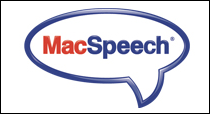
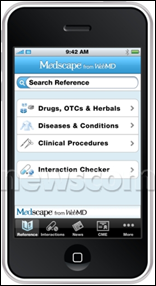









































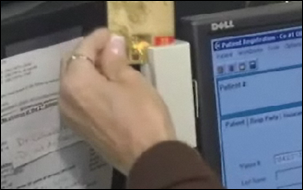





The article about Pediatric Associates in CA has a nugget with a potentially outsized impact: the implication that VFC vaccines…